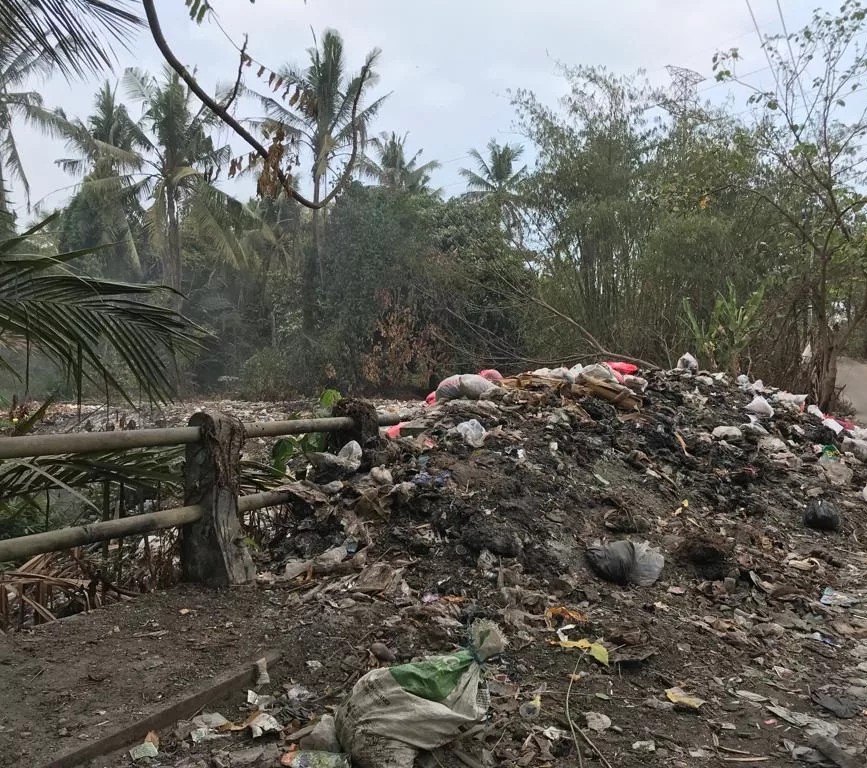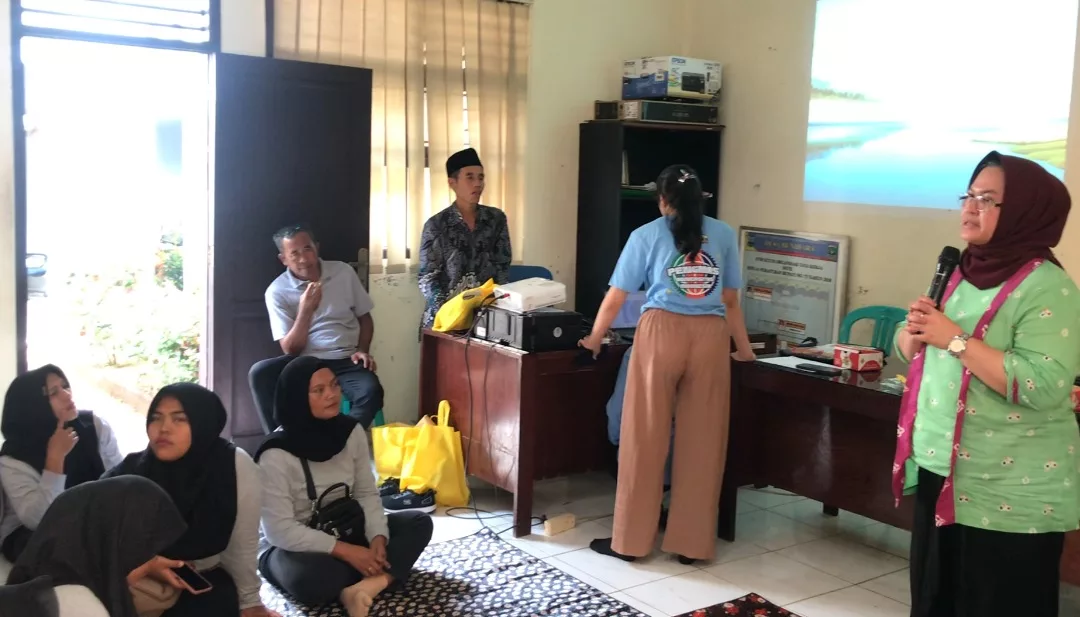Depok-The waste problem is a common challenge for people in Indonesia. Data from the National Waste Management Information System (SIPSN) of the Ministry of Environment and Forestry (KLHK) of the Republic of Indonesia in 2022, input from 202 districts/cities throughout Indonesia, states that the amount of national waste stockpiled has reached 21.1 million tons.
Of the total national waste production, 65.71% (13.9 million tonnes) can be managed, while the remaining 34.29% (7.2 million tonnes) has not been managed properly. So, it is necessary to implement waste management so that it has economic value for the community, from upstream to downstream.
Based on these conditions, it is necessary to optimize waste management by applying the basic principles of 3R, reduce, reuse, and reycle (3R). Lecturer in the Media Production study program, Vocational Education Program, Universitas Indonesia (UI), chaired by Dr. Rahmi Setiawati, S.Sos., M.Si. together with a team of lecturers and students, carried out community service activities with the theme “Plastic Waste Management Program as Economic Value and Environmental Sustainability” in Serang Regency, Banten on December 20, 2023.
Rahmi said that the aim of this activity was to raise public awareness so that they play an active role in caring for environmental sustainability and managing waste into economic value. The locations for these community service activities are in Cikolelet Village and Bunihara Village. Cikolelet Village is a culture-based tourist village. So, plastic waste can be reused as souvenirs. Meanwhile, Bunihara Village manages used cooking oil into candles, which can be used for restaurants and hotels.
 (Photo: One of the waste accumulation locations in the Serang Regency area)
(Photo: One of the waste accumulation locations in the Serang Regency area)
“It is hoped that the use of plastic waste will become economic value and create economic improvements for the welfare of village communities with the bonus of a clean and healthy environment,” said Rahmi.
Rahmi explained, in the initial stage, the team carried out a mapping with the Chair of the Kelompok Sadar Wisata (Pokdarwis) regarding the design of a community empowerment program for economic improvement. Because Cikolelet Village is a cultural tourism village as a place for tourist activities that is inseparable from the rubbish that tourists often leave behind.
According to Rahmi, this activity needs to be carried out targeting housewives, as the initial movers in waste management which starts internally, namely households, through providing knowledge about selecting organic and inorganic waste, especially sorted plastic waste. For example, straws can be made into frames and vanity mirrors, while plastic bags can be made into bags. Then, used plastic drinking water cups can be made into plastic flower crafts. “Armed with this knowledge and skills, it is hoped that it can provide benefits for mothers to develop creativity that produces products from waste into souvenirs. “So, this program helps the family’s economic income,” explained Rahmi.
However, continued Rahmi, further programs are needed related to attractive packaging for products recycled from plastic waste so that they have sales value, as well as guidebooks and posters on plastic waste management. After that, a marketing strategy for the product is needed by creating a special website prototype for communities making recycled products from plastic waste as a platform to develop their business and market it.
Rahmi hopes that plastic waste management activities can create a clean and comfortable environment because it reduces the environmental burden on plastic waste. This activity is the first step in a solution to reduce plastic waste, but the main thing is to change behavior to be disciplined in managing plastic waste.
Through these activities, a system will be built that provides mutual benefits to the community and optimizes the waste management value chain at the source by utilizing technology and improving waste processing facilities that are managed professionally and integrated. “The main thing is, waste is not something that is thrown away, but rather a way for waste to have economic value and its impact on sustainable tourism development will be realized in a harmonious and dynamic manner,” concluded Rahmi.


